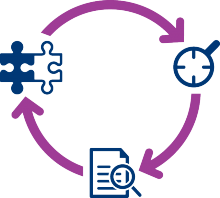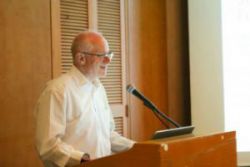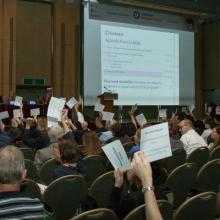We are pleased to announce the 12 successful titles from the fourth Cochrane Review Support Programme (CRSP) funding round.
- Adverse events in patients taking macrolide antibiotics versus placebo for any indication (Cochrane Acute Respiratory Infections)
- Cognitive behaviour therapy versus standard care for schizophrenia (Cochrane Schizophrenia)
- Continence outcomes in pelvic organ prolapse surgery (Cochrane Gynaecology and Fertility)
- Fluoride toothpastes of different concentrations for preventing dental caries (Cochrane Oral Health)
- Methods of consumer involvement in developing healthcare policy and research, clinical practice guidelines and patient information material (Cochrane Consumers and Communication)
- Mobile phone based interventions for improving adherence to medication prescribed for the primary prevention of cardiovascular disease (Cochrane Heart)
- Peri-operative interventions in pelvic organ prolapse surgery (Cochrane Gynaecology and Fertility)
- Saline irrigation for allergic rhinitis (Cochrane ENT)
- Selective noradrenaline re-uptake-inhibitors (SNRIs) for attention deficit hyperactivity disorder (ADHD) in adults (Cochrane Developmental, Psychosocial and Learning Problems)
- Surgery for women with posterior compartment prolapse (Cochrane Gynaecology and Fertility)
- Treatment for lupus nephritis (Cochrane Kidney and Transplant)
- Very early versus delayed mobilisation after stroke (Cochrane Stroke)
We received 17 applications (19 reviews) from 13 groups. To evaluate the applications we convened an international assessment panel comprising nine Cochrane contributors and consumers of Cochrane Reviews, who generously shared their time and expertise:
Dr Corrado Barbui, WHO Collaborating Centre for Research and Training in Mental Health and Service Evaluation, Department of Neuroscience, Biomedicine and Movement Sciences, Section of Psychiatry, University of Verona, Verona, Italy
Dr Urbà González, Unit of Dermatology, CLĺNICA GO&FER, Barcelona, Spain
Prof Sally Green, Australasian Cochrane Centre, Monash University, Melbourne, Australia
Dr Richard Lehman, Hightown Surgery, Oxford, UK
Prof Ashraf F Nabhan, Department of Obstetrics and Gynaecology, Faculty of Medicine, Ain Shams University, Cairo, Egypt
Dr Susan Norris, World Health Organization, Geneva, Switzerland
Dr Mbah P Okwen, Centre for the Development of Best Practices in Health, Yaoundé Central Hospital, Yaoundé, Cameroon
Dr Sera Tort, Cochrane Editorial Unit, London, UK
Dr Ronaldo Zonta, Secretary of Health of Florianópolis, Florianópolis, Brazil
The next funding round will open in September 2017 and will be advertised via the usual Cochrane communication channels.













